- 23-24 October 2025
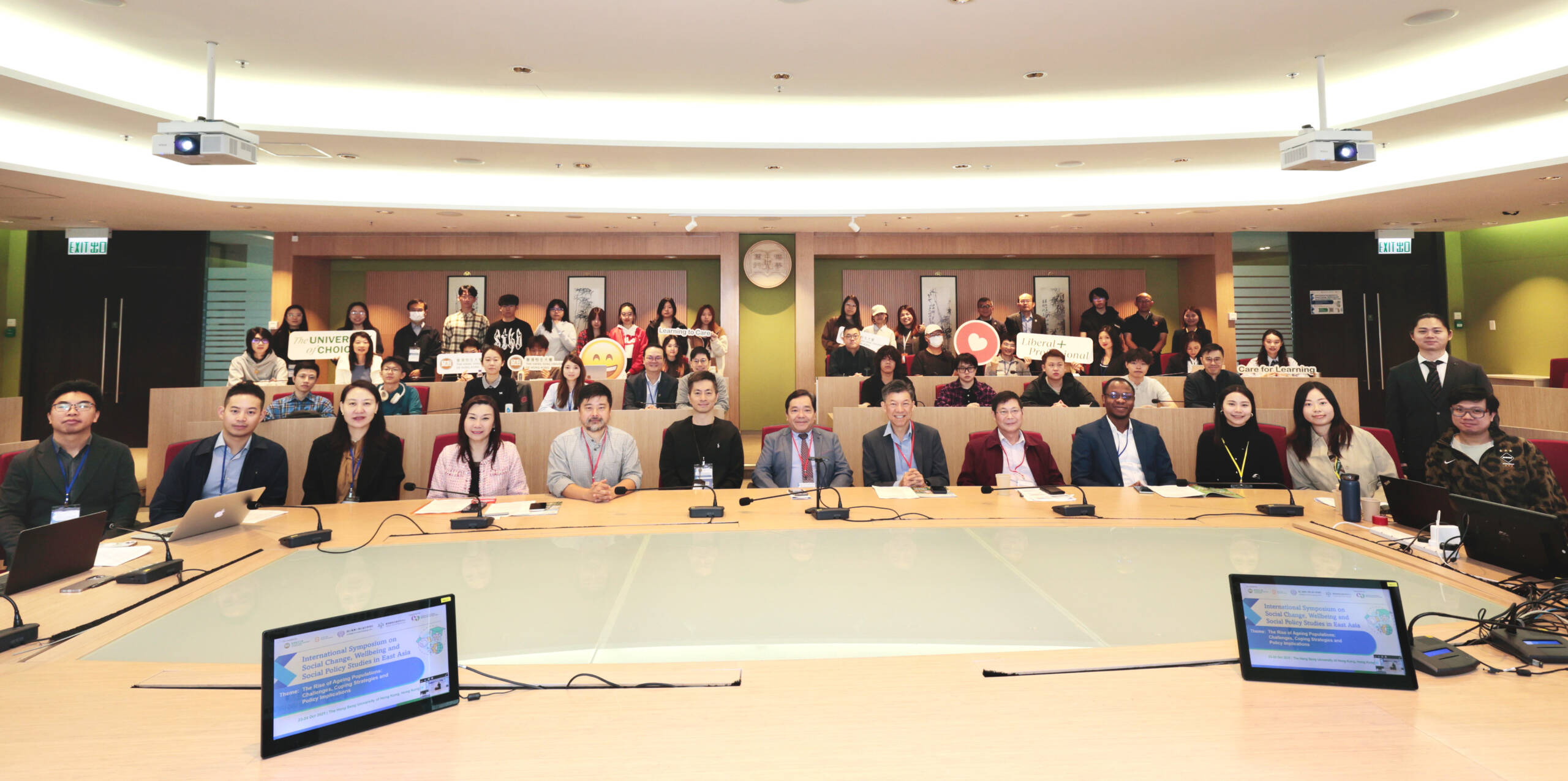
Day One Sets Stage with Innovative Solutions and Cross-Border Dialogue
On 23 October, Professor Joshua Mok Ka-ho, Provost and Vice-President (Academic and Research) of The Hang Seng University of Hong Kong (HSUHK), formally opened the symposium with a welcoming address. He emphasized that meeting the needs of an ageing society requires collaboration among government, stakeholders, and the wider community. “Addressing the needs of an ageing population requires collaboration between the government, stakeholders, and the wider society. Embracing diversity across different ages and fostering intergenerational support are crucial for creating a better society,” he said.
Professor Terry Lum Yat-sang, Henry G. Leong Professor in Social Work and Social Administration at The University of Hong Kong, delivered a keynote speech introducing a pioneering social capital framework for promoting healthy ageing. His research on mechanisms like time-banking provided compelling evidence for new approaches to demographic challenges.
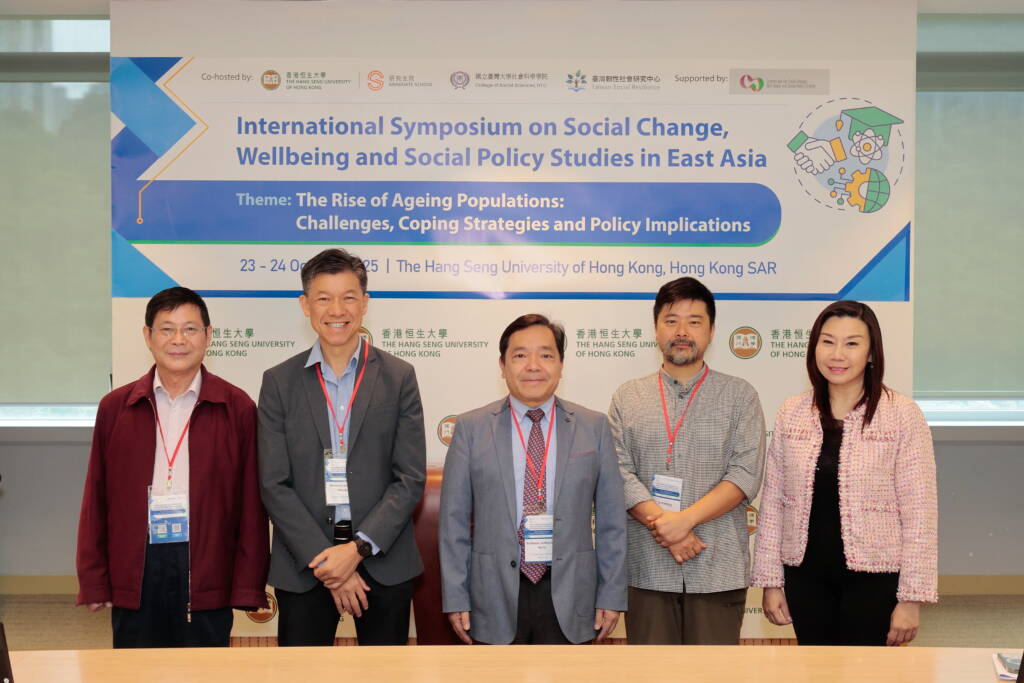
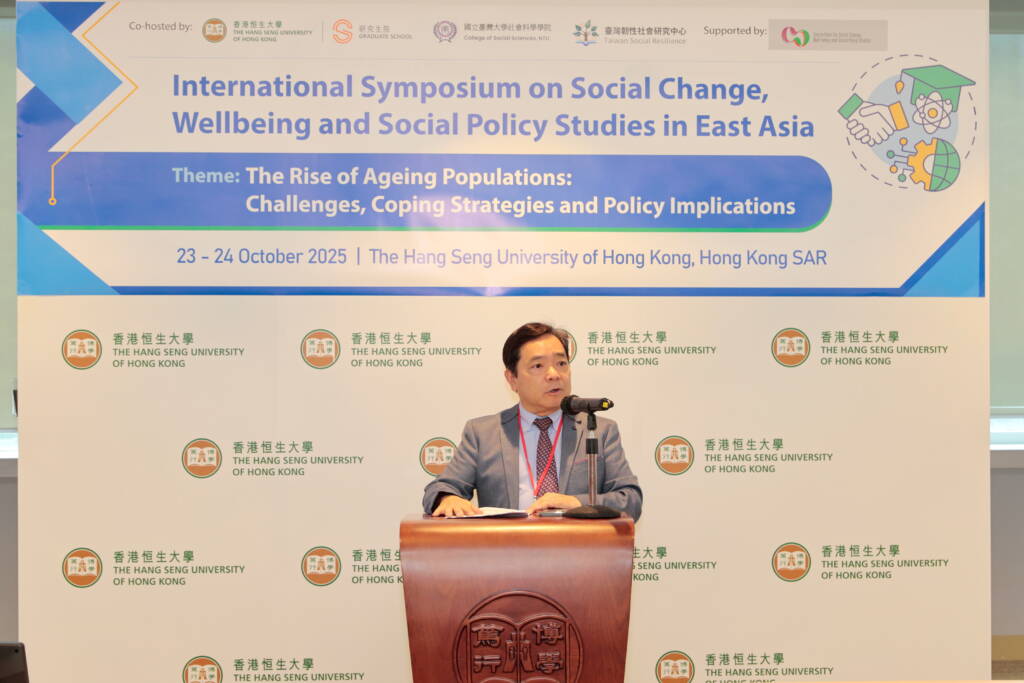
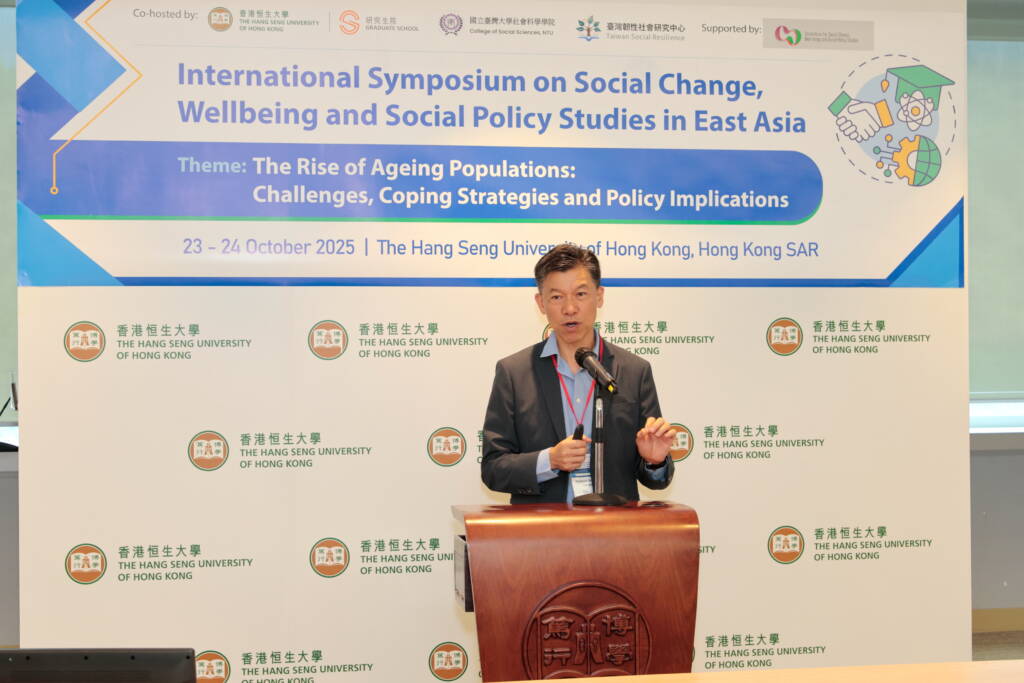
Two roundtable discussions further deepened the exchange
The first roundtable, “Managing Ageing Population: Comparative Perspectives,” moderated by Professor Mok, featured insights from Professor Kuo Yu-ying (NTU), Professor Lin Ka (Zhejiang University), and Professor Lum. The panel examined diverse policy approaches and systemic responses to aging population across Mainland China, Hong Kong, and Taiwan, highlighting both shared challenges and context-specific solutions in these closely linked yet distinct societies.
The second roundtable, “Strategic Communication on Social Change, Wellbeing, and Social Policy,” chaired by Professor Scarlet Tso Hung, Dean of the School of Communication at HSUHK, brought together Ms May Chan Suk-mei, GBS, JP, chairperson of Journalism Education Foundation and special adviser to the chairman, Hong Kong Commercial Broadcasting Company Ltd; Dr Fan Ning, the founder of Health in Action; Professor Wu Shun-wen from the National Taiwan University. These experts from academia, civil society, and media, examined how strategic communication shapes public understanding and policymaking.
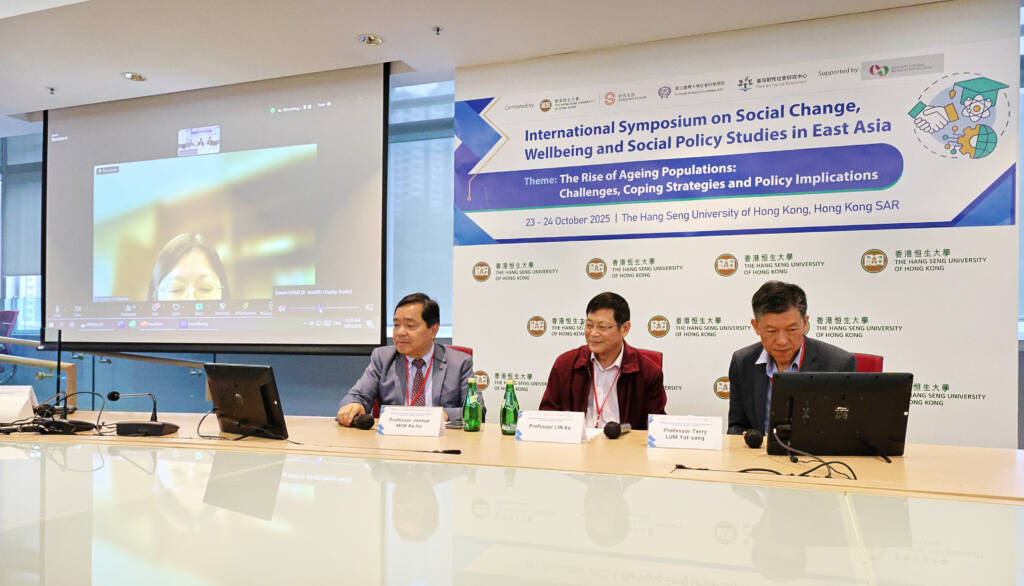
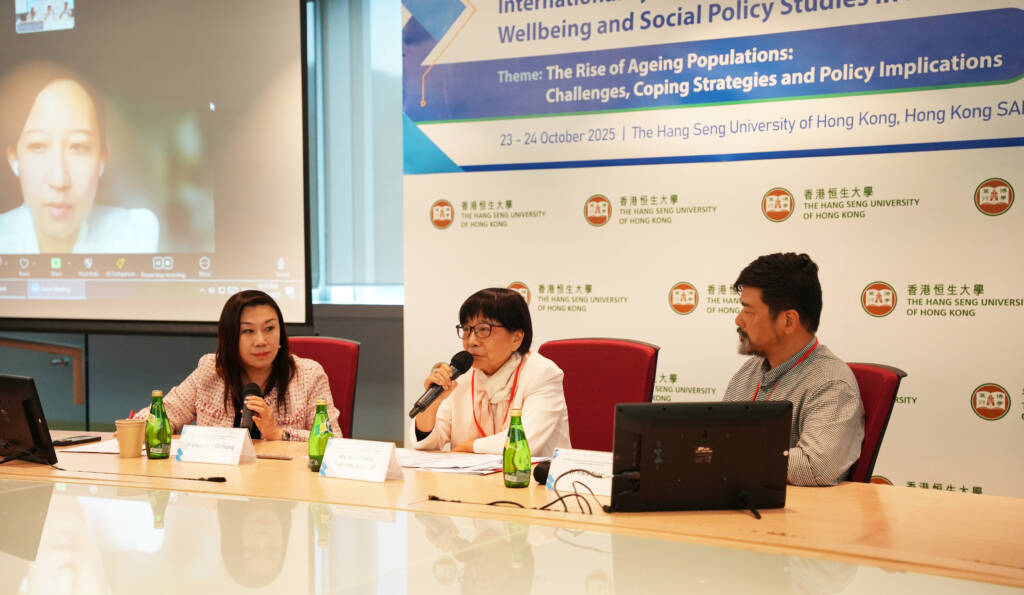
The afternoon featured two parallel presentation sessions showcasing eight studies on ageing, technology, and community wellbeing. Panel A, “AI and Technology for Inclusion,” presented three papers on applying artificial intelligence to support elderly care, dementia caregiving, and digital inclusion for persons with disabilities. Panel B, “Wellbeing in Communities,” offered five presentations spanning retirement studies, the impact of community environments on wellbeing, sports participation among migrant populations, transnational healthcare practices, and advancing financial literacy through machine learning.
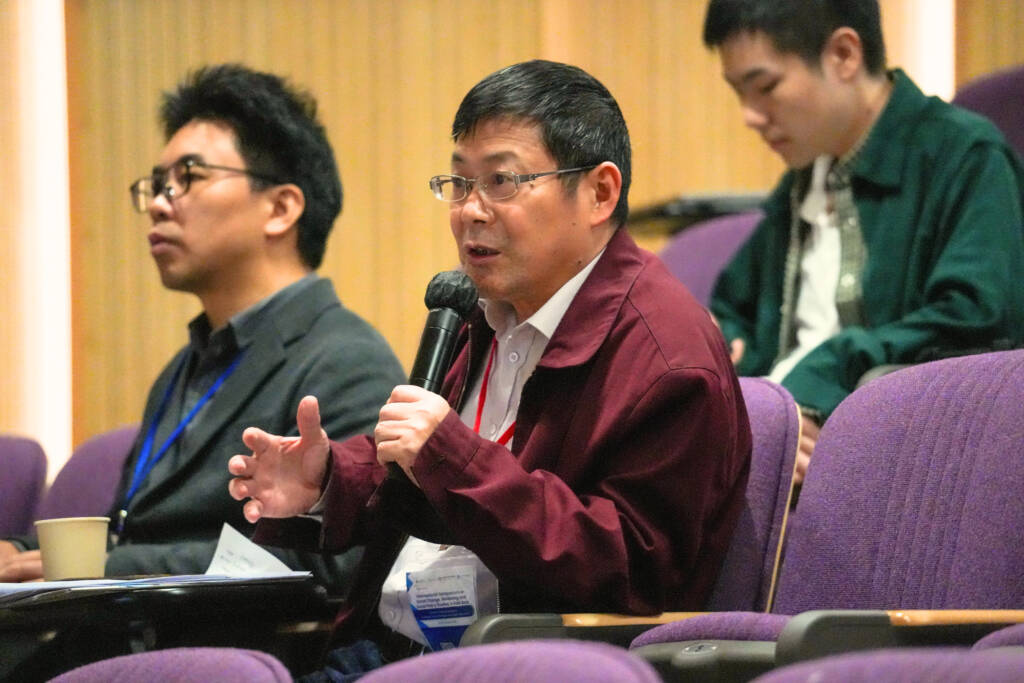
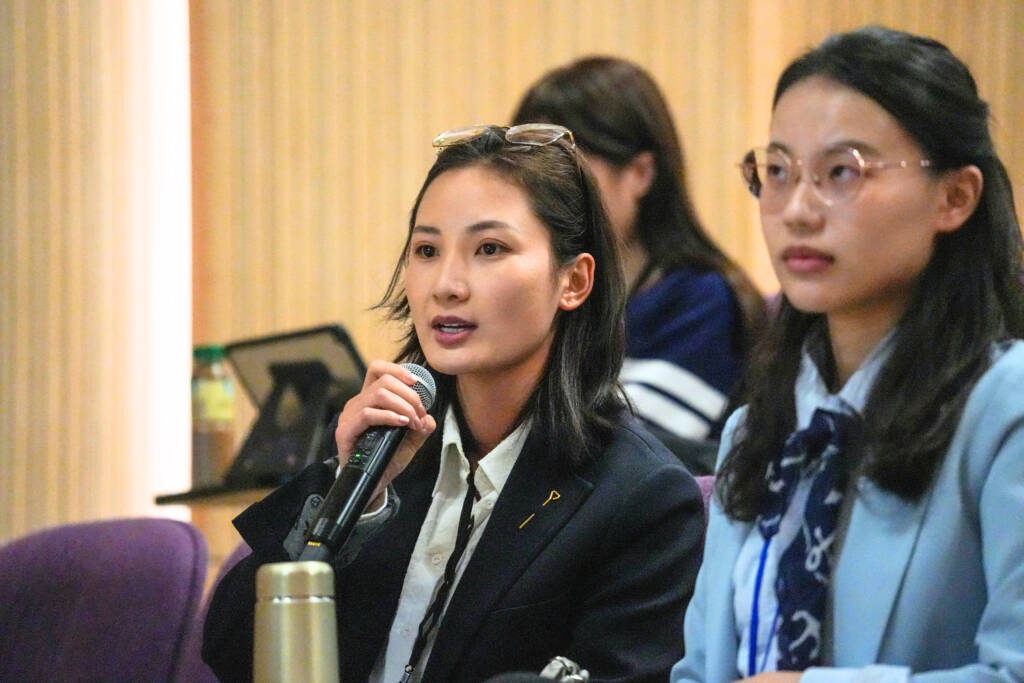
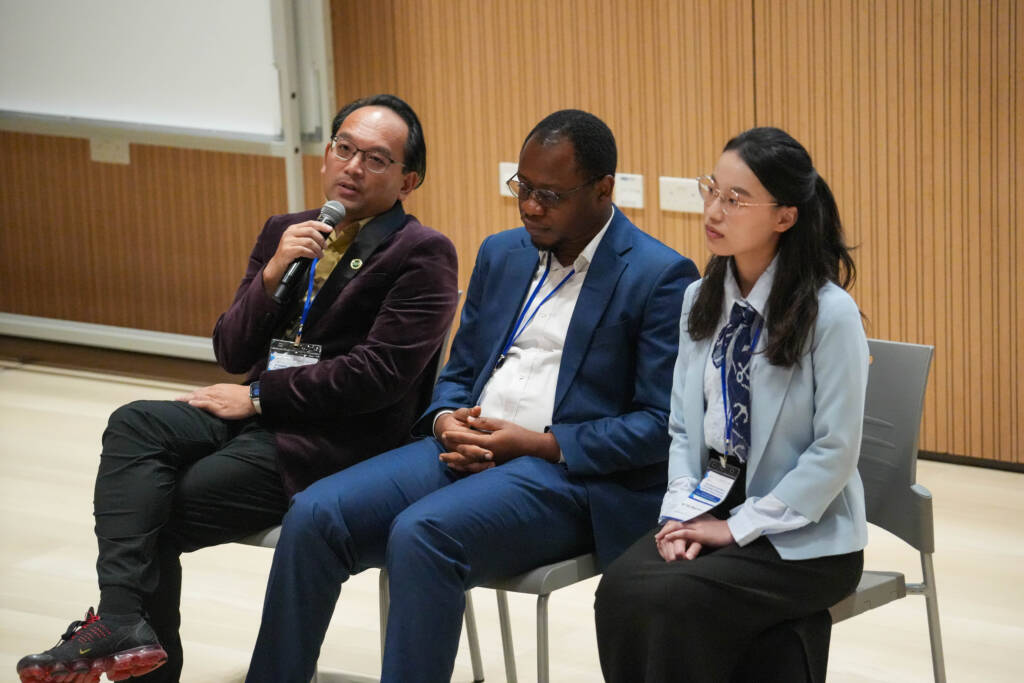
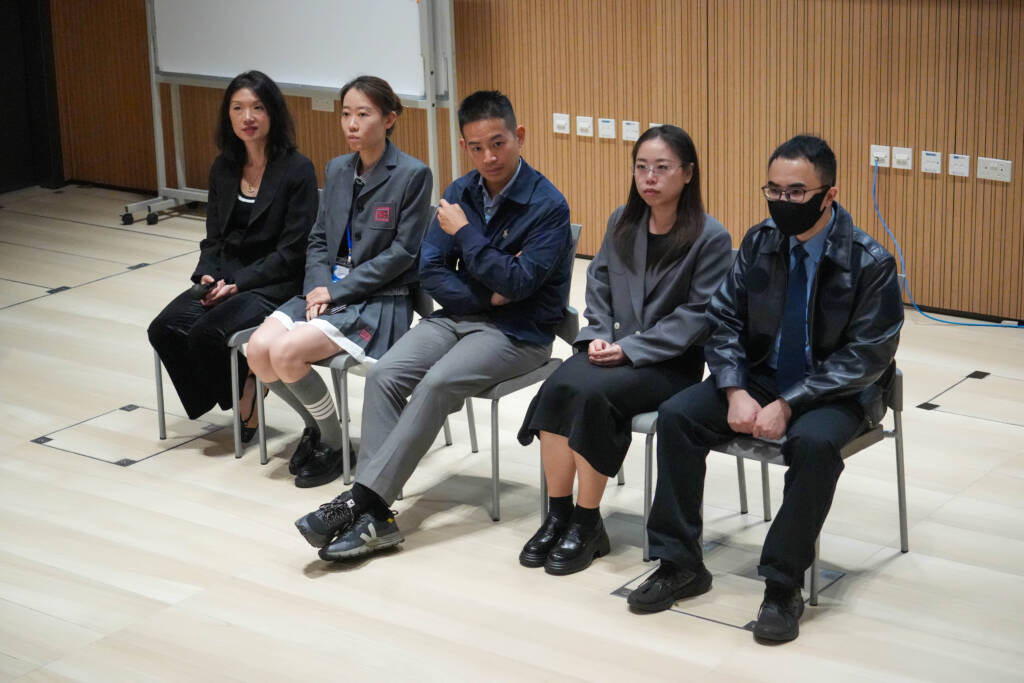
Day Two Builds on Foundations with Policy Insights
The second day continued the momentum with deeper dives into policy implementation. Professor Shi Shih-jiunn of National Taiwan University delivered a comparative analysis of long-term care policy development in Mainland China, Hong Kong, and Taiwan, demonstrating how political institutions shape welfare systems.
The symposium showcased three thematic panels with 11 presenters, advancing evidence-based insights on ageing, health, and inclusion. Panel C examined East Asia’s care ecosystems, from stakeholder models in dysphagia care and migrant care workers’ vulnerabilities to how living arrangements shape wellbeing across regions. Panel D focused on China’s healthcare reforms, covering welfare retrenchment design, long-term care insurance evaluations, and access challenges for cross-border elders. Panel E widened the lens globally, exploring insurance suspension behaviors, elderly cultural practitioners, older refugees’ social integration in Hong Kong, government website accessibility for seniors, and strategies to counter ageism.
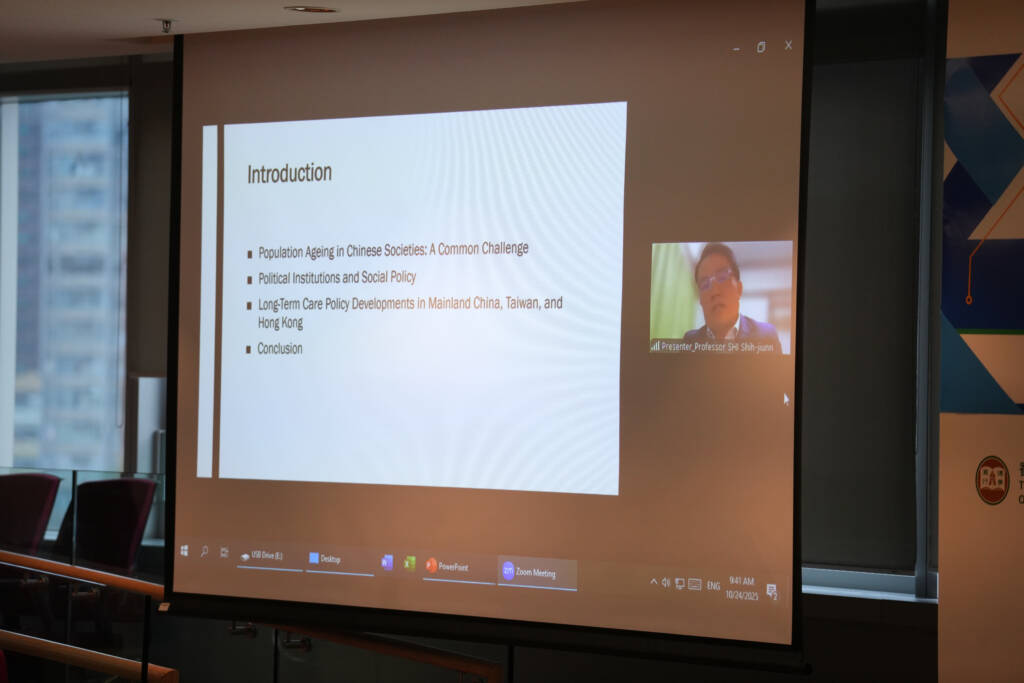
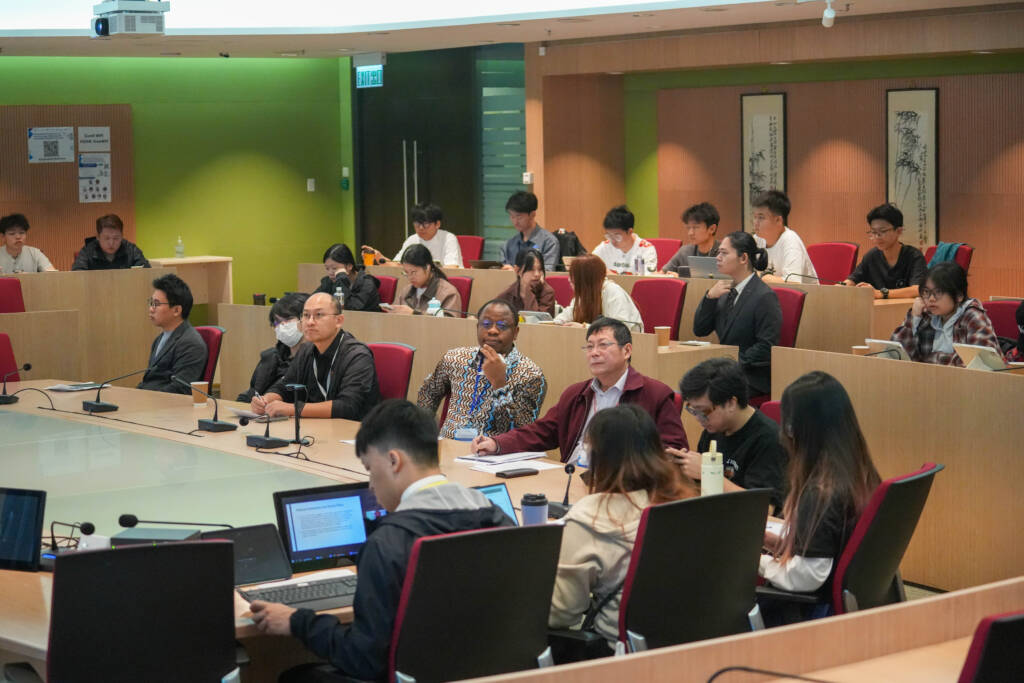
In her closing remarks, Professor Kuo Yu-ying of NTU emphasized that “the conversations we’ve started here should continue.” By integrating comparative research, technological innovation, and strategic communication perspectives, the symposium has contributed significantly to developing sustainable policies for ageing societies across East Asia.
For the full programme and symposium updates, please visit:
International Symposium on Social Change, Wellbeing and Social Policy Studies in East Asia | Graduate School



